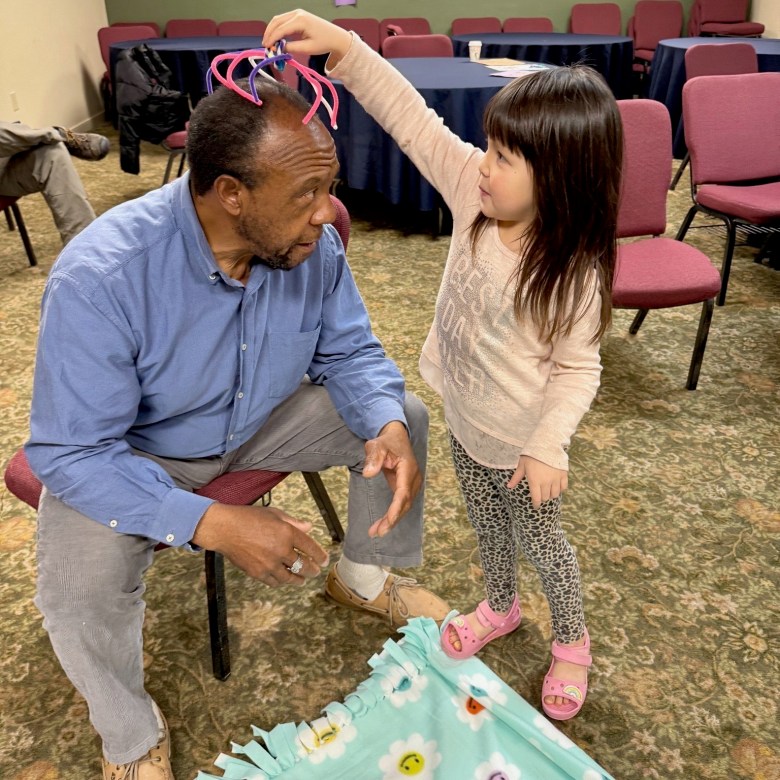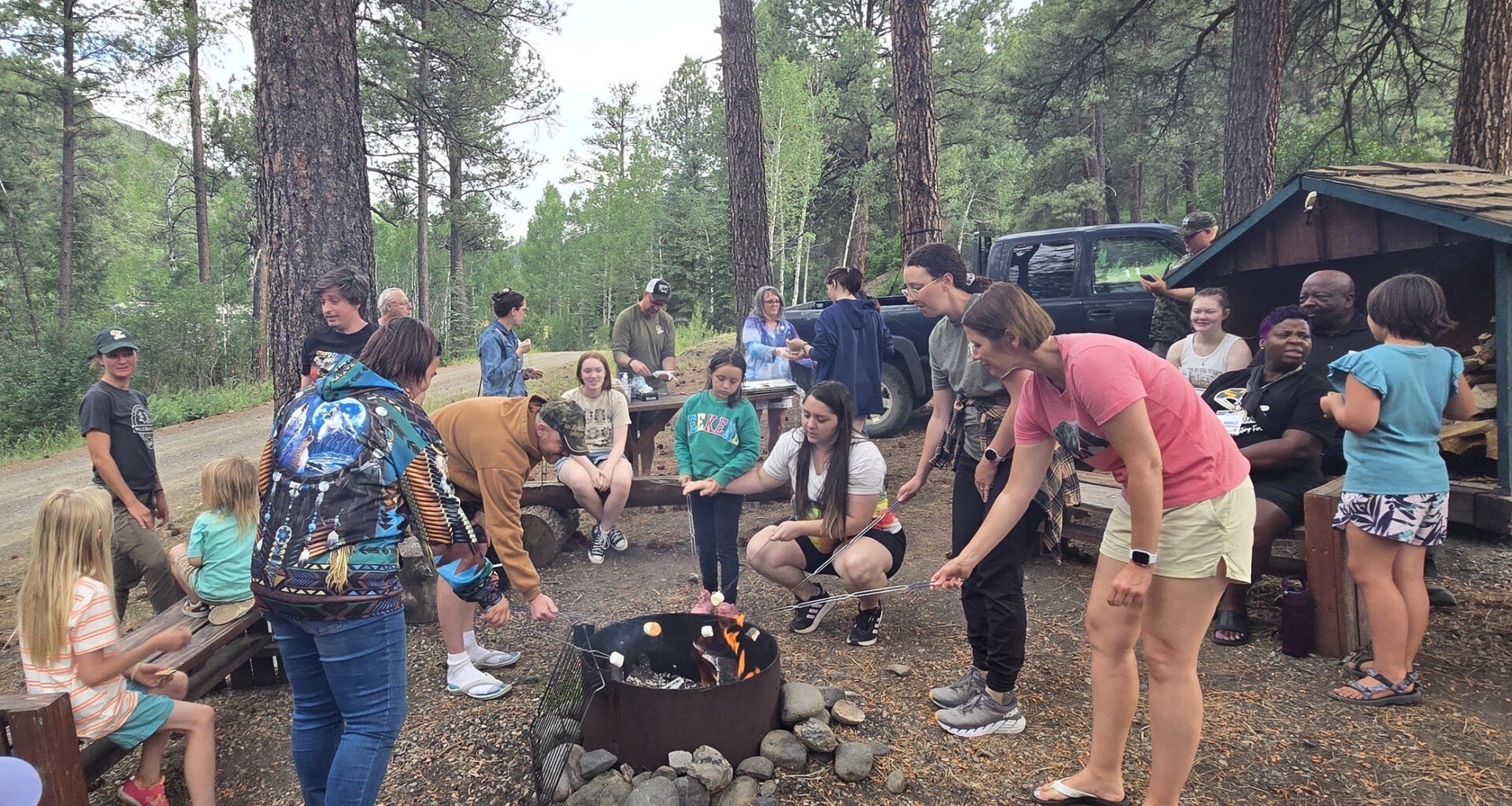When U.S. Army veteran Tom Richmond first heard about Project Sanctuary, he didn’t know what to expect. His wife, Kate, found the nonprofit online after his last Iraq deployment in 2010.
Two years later, they packed up their kids and drove 20 hours from Connecticut to a retreat in the Colorado mountains.
Stories of Honor is a Fort Worth Report weekly series spotlighting 12 Tarrant County veterans who are serving beyond the uniform.
We also are highlighting nonprofits recommended by the veterans.
In November, the veterans will gather for a luncheon where the Report will honor their service at the National Medal of Honor Museum in Arlington.
Initially, Richmond viewed it as a free trip — a cabin in the woods, pine trees and cool mountain air. On the first night when families gathered to share their stories, his nerves set in.
“We sat with around 10 other families, we introduced ourselves, and that’s when I realized we had to talk about our problems,” Richmond said. “I wasn’t sure if I was ready for that.”
That moment captured the heart of Project Sanctuary, a nonprofit that provides a safe space for military families to heal. Through six-day retreats, the organization blends outdoor recreation with counseling, financial classes and relationship-building workshops. Veteran families attend at no cost.
The goal is to repair marriages, strengthen family bonds and give veterans tools to improve their well-being and confront issues like post-traumatic stress disorder.
For Richmond, those tools came just in time.
His kids bonded with others who had also endured long absences. Between deployments, the National Guard and his job as a fire lieutenant, Richmond grew accustomed to being away. The retreat gave him a stability he hadn’t felt in years.
 Project Sanctuary provides a safe space for families to work through hardships and strengthen bonds. (Courtesy photo | Project Sanctuary)
Project Sanctuary provides a safe space for families to work through hardships and strengthen bonds. (Courtesy photo | Project Sanctuary)
“For the first time in nearly two years, it felt like I was at home with my family,” Richmond said.
Even when his marriage strained under the weight of PTSD, he leaned on resources from Project Sanctuary.
“As an older vet deployed in my 40s, I thought I could handle anything,” Richmond said. “I didn’t realize how bad my PTSD was until I started meeting with counselors. I was wrong.”
In 2023, Richmond hit a low. His PTSD crept up. He and Kate nearly separated. The nonprofit provided resources, including directing him to Save A Warrior, a program focused on suicide prevention and mental well-being.
“It definitely saved our marriage,” he said.
The experience transformed his family’s trajectory. Richmond returned to volunteer, first as a cook and later as a retreat manager. Today, he and his family live and work at the retreat center in Colorado.
“It helped out my family so much that we wanted to go and help other families feel what we felt afterwards,” Richmond said.
Heather Ray, a registered nurse, founded Project Sanctuary in 2007 after treating veterans with Gulf War illnesses. She worried about what post-9/11 service members would face when they returned home.
 Retreat families bond and heal while rafting at a Project Sanctuary retreat. (Courtesy photo | Project Sanctuary)
Retreat families bond and heal while rafting at a Project Sanctuary retreat. (Courtesy photo | Project Sanctuary)
“These are at-risk families that need help and are asking for help,” Ray said. “They refer other families back to us because they understand the value of what we’re providing.”
Her first retreat drew a handful of families. Since then, the nonprofit has served nearly 2,500 families across Colorado, Texas, Georgia and Maryland. The organization holds about 20 retreats annually.
Marine Corps veteran Vaughn Badenhorst, a retreat manager who lives in Fort Worth, has witnessed those transformations.
Helping families on the brink of separation and repairing relationships is therapeutic, Badenhorst said. By the end of a retreat, couples are holding hands again, and their kids see the change.
“The kids are getting as much out of it, if not more, than their parents,” Badenhorst said.
Richmond knew the retreat had been effective when his family returned home and he realized he needed to be a better father and husband.
“For us, it was a really positive experience,” he said.
Knowing firsthand how damaging untreated mental issues can be, Badenhorst leads from the front to get families the help that they need.
Now Richmond aims to do the same.
Orlando Torres is a reporting fellow for the Fort Worth Report.
At the Fort Worth Report, news decisions are made independently of our board members and financial supporters. Read more about our editorial independence policy here.
Related
Fort Worth Report is certified by the Journalism Trust Initiative for adhering to standards for ethical journalism.
Republish This Story
Republishing is free for noncommercial entities. Commercial entities are prohibited without a licensing agreement. Contact us for details.


